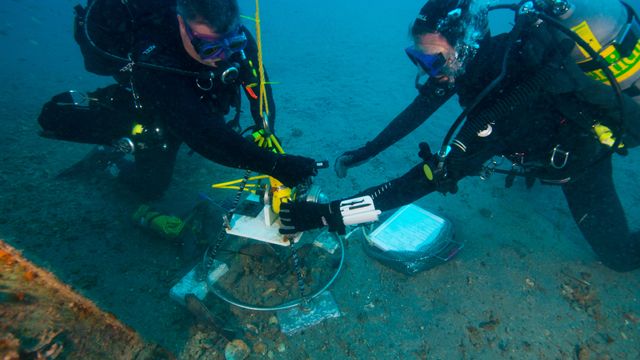UNC researchers study impact of sound underwater
Thirty miles off the coast of North Carolina, researchers are using under water cameras and microphones to answer a question of aquatic acoustics.
Posted — UpdatedResearcher Avery Paxton is leading the project, studying how man-made sounds are affecting fish on reefs off the coast.
"There's still so many questions of how the fish are using these reefs, and how the sounds we humans make in the water can change how fish use their homes," she said.
The University of North Carolina Institute of Marine Science, along with Duke Marine labs and NOAA, want to establish a base line of fish activity before new energy development gears up in the ocean.
"We don't know how fish respond to loud noises when you explore for oil and gas, known as seismic surveying," Paxton said.
Seismic surveying blasts loud noise through the water into the ocean floor and measures the echo returned.
"We know from lab experiments where fish are in captivity and are exposed to loud noises that it can cause a lot of damage, but we don;t know how they respond in their natural environment," Paxton said.
And it's not just seismic surveying, boats, construction and structures left behind also have an impact.
"If you put a wind turbine and a renewable energy device in the marine environment, you can choose the sounds you experience on the reefs, and this may influence how the fish use their homes and thus are our fisheries," Paxton said.
The year-long study will wrap up in November.
• Credits
Copyright 2024 by Capitol Broadcasting Company. All rights reserved. This material may not be published, broadcast, rewritten or redistributed.





